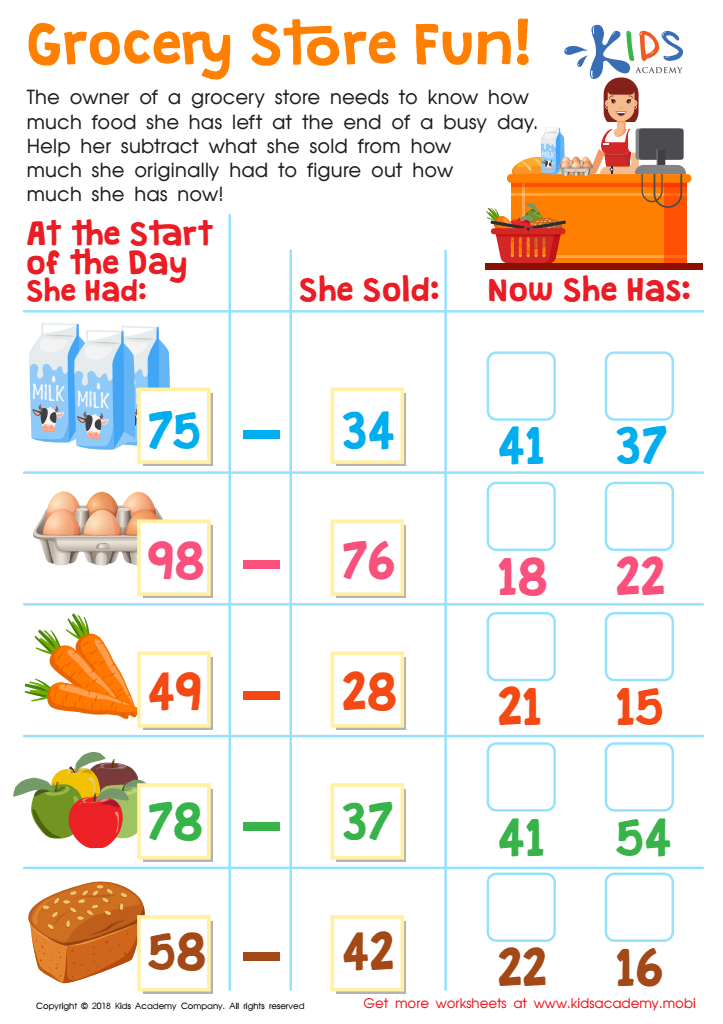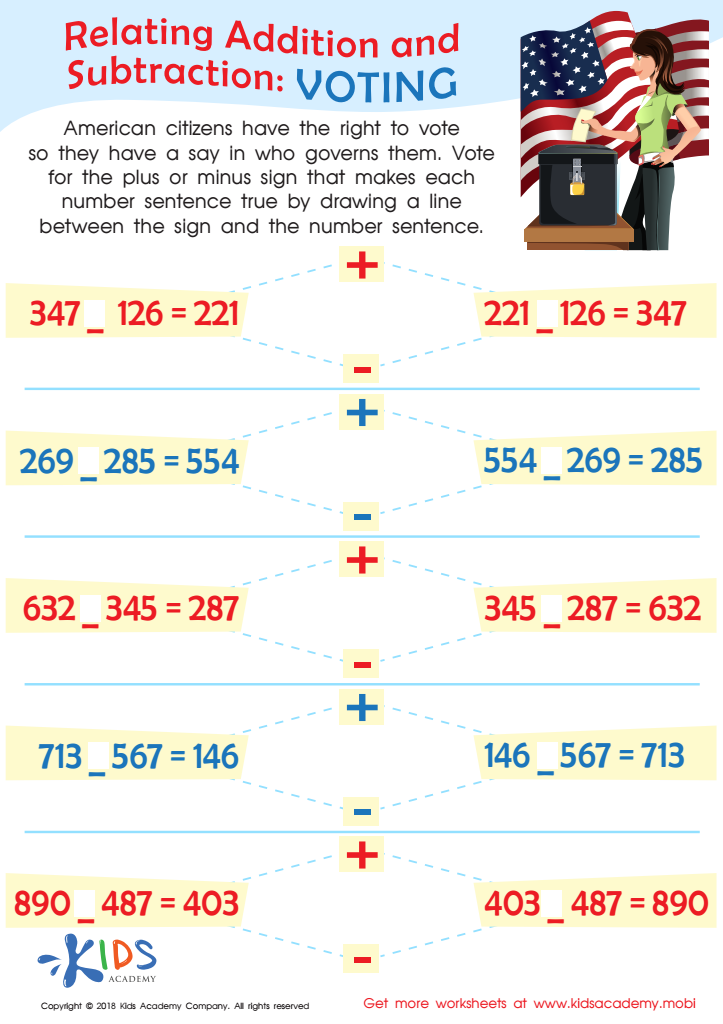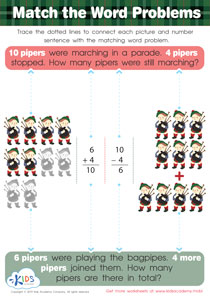Logical thinking development Normal Addition Worksheets for Ages 5-9
3 filtered results
-
From - To
Enhance your child's logical thinking skills with our engaging Normal Addition Worksheets, specifically designed for ages 5-9. These worksheets provide a fun and interactive way for young learners to master basic addition concepts while developing critical reasoning abilities. Each activity encourages children to approach problems with logic and creativity, reinforcing their understanding of numbers through enjoyable exercises. By integrating colorful illustrations and relatable scenarios, our worksheets captivate young minds, ensuring effective learning experiences. Perfect for home or classroom use, these resources empower students to build confidence in their math skills and foster a love for learning! Make addition enjoyable today!


Grocery Store Fun! Worksheet


Voting Worksheet


Tricky Problems Worksheet: Part 2
Understanding and fostering logical thinking development, particularly through normal addition for children aged 5-9, is crucial for several reasons. At this formative stage, children begin to develop foundational skills that significantly influence their mathematical capabilities and overall cognitive growth. Normal addition serves as one of the building blocks of mathematics, promoting not just number recognition but also problem-solving and critical thinking skills.
When parents and teachers prioritize logical thinking in addition, they provide children with tools to comprehend complex concepts later. This age is critical for neural connections; engaging students with hands-on activities can help create a positive learning environment. Additionally, mastering addition encourages persistence and resilience, essential life skills that children will carry into future academic pursuits.
Moreover, early exposure to mathematical reasoning boosts confidence in their abilities, reducing math anxiety and encouraging a growth mindset. Cultivating these skills helps to prepare students for more advanced topics in mathematics and fosters an appreciation for learning. Ultimately, nurturing logical thinking through addition is pivotal not only for children's academic success but also for equipping them with essential skills for everyday decision-making and future challenges.
 Assign to My Students
Assign to My Students















